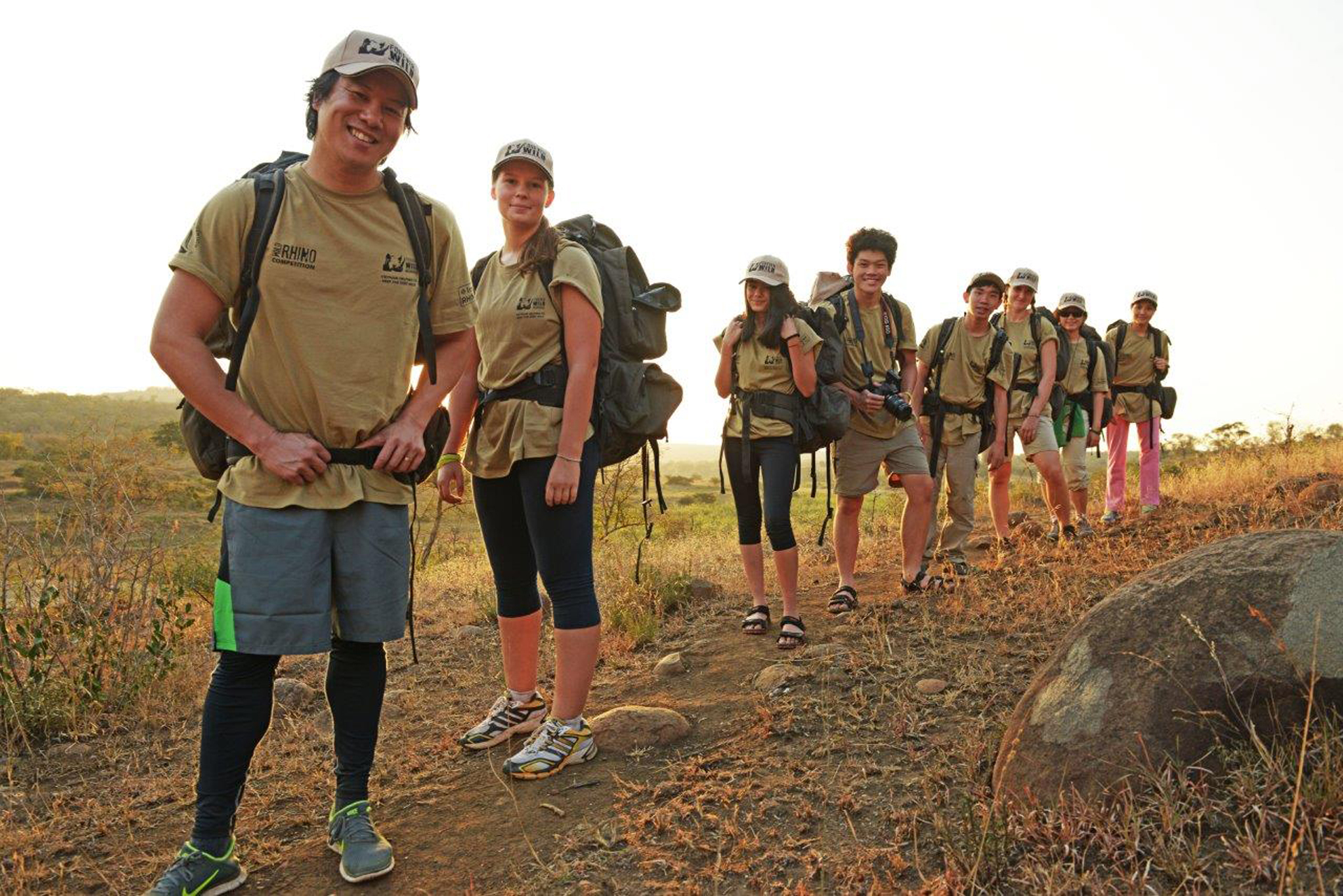Vietnamese Youth Helping Keep Rhino Wild
By Fortunate M. Phaka (Youth 4 African Wildlife Project Leader)

“ Demand reduction is something we have neglected in Africa. As important as other anti-poaching measures are we have to reach the hearts and minds of consumers. We have to change their behaviour. I believe that most of the demand is generated because those consumers simply do not know the price that rhino and our economy have to pay because of rhino poaching. They also do not know the impact it has on us as South Africans; as a nation whose heritage is being plundered. I think the message is coming through quite strongly from the Vietnamese that they are a nation that is open to receive our message. We do have a mechanism, including the youth today, to take that rhino message into the heart of consumer communities in Vietnam.”
– Dr Will Fowlds
I often find myself on the brink of conservation fatigue and also furious at how we are failing to protect the one thing we cannot live without. This generation’s youth does not really seem concerned about any environmental issues or anything that may require long-term thinking. The YOLO (You Only Live Once) mentality seems to have spread like wildfire. We are destroying the planet’s life giving processes and only a small percentage of my fellow youths seem concerned about this. Mother Earth’s environmental outlook seems so bad that I occasionally daydream about that one-way trip to Mars. Sometimes I even consider how ignorance may actually be blissful. Not caring about anything or anyone seems to be the latest ‘hip thing’ and those who claim to have mastered the supposed art of controlling their feelings appear to be the happiest. The doubt threatening to take over my mind quickly disappears when I remember how society’s norms are fickle, constantly changing beings with no backbone. Doubt may be bad but it is something I embrace; it helps ground me and stops me from getting over-confident as I try to establish myself as a young person in this conservation world.

Something I embrace more than doubt, however, are the inspirational stories of conservation that keep me going and make me hopeful that our conservation efforts can yield positive results. I recently spent a couple of hours with Vietnamese high school students at a workshop organised by The Wilderness Foundation as part of their Wild Rhino Competition. This competition is a demand reduction strategy specifically targeted at youth. It sees Vietnamese youth as more than possible future consumers of rhino horn, but as possible rhino ambassadors and vital components in efforts to change how a whole nation relates to rhinos.
With Vietnam being one of the biggest consumers of rhino horn, the country’s youth will have a big influence on future rhino horn consumption rates. In 2010, 23.5% of Vietnam’s population was under the age of 15 and 20.1% of the population was between the ages of 15-24. By the time these young people become independent adults, there may be no more rhino left. The situation can be different if today’s youth do not see rhinos as objects to consume but as living beings important to our earth.
There’s no doubt that the current conservation mess we are trying to clean up was caused by our fathers and forefathers. Decisions about the future of our world are often made without much youth involvement and human history is painted with messes left by one generation to be cleaned up by the next. It is not fair and it is not easy, but it is not impossible. We can tackle this, but we have to push hard to educate and create community as world youth.
Witnessing first-hand how this particular demand reduction strategy was yielding better than expected results reassured me that we were not fighting a losing battle. It was inspiring how the Vietnamese youths spoke passionately about rhinos specifically and other wildlife in general. For them, rhinos are beings to be loved and cherished. They now see rhino horn as something that is only useful or valuable for the rhino and completely useless for people. This demand reduction campaign has gone beyond changing misconceptions; it has created a connection with rhinos and other wildlife. The Vietnamese youth have become proponents of change. Each of them have committed to raising awareness of rhino poaching and also reducing demand for rhino horn in Vietnam. Through outlets such as video games, celebrity ambassadors and sports they plan to change how their fellow countrymen, especially their peers, relate to rhinos.
I am particularly hopeful of their efforts because children are more likely to change their parents’ views than any other person. This strategy has potential to reach a greater number of people and a wider age group than originally intended. I noticed that one of the Vietnamese youths came to South Africa with a grocery bag full of handmade rhino plush toys. They were sewn by his mother as a token of appreciation for those involved in the Wild Rhino Competition. His passion led to his parents being involved in the campaign and changed the way they relate to rhinos. The rhino toy symbolises hope for winning our fight against rhino poaching and proves that beliefs can be changed.
“Sometimes it falls upon a generation to be great, you can be that generation”
– Nelson Mandela

